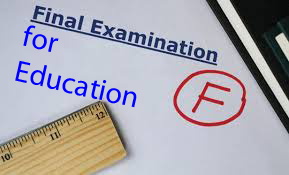What if everything we thought we knew about learning was wrong?
Well we have been wrong about things before!
People argued that the world was flat and even now people have different views about the earth revolving around the sun (just go on line and Goggle it!). It is easy to build on shaky foundations if you believe in those foundations. There may come a time when you have to find ways of discounting new discoveries in order to maintain your original beliefs too. You may even re-interpret things in order to fit in with what you believe to be true and attack or try to convince those who do not believe as you do. It may be a human condition that we act this way.
Whatever foundation we build on there is the potential, as we rise so far from them, that we no longer even recognise them for what they were and what they were based on. We become slaves to tradition, to the “basics”, to doing more of what we have always done. Going back to the start is often a cathartic way of trying to determine what is, and what is not, “right” of what actually works and what does not rather than what is. I believe there is a saying attributed to Albert Einstein that goes along the lines of “Insanity is doing the same thing over and over again and expecting different results.” I suggest that to expect that in doing what others have done for different reasons or needs than those of your own will bring about what you need is misguided at least and insanity at worst.
Dismantling existing practices or held beliefs in order to establish their validity or truth can reveal some of our shaky foundations and give us the freedoms to rebuild and establish more informed pathways or beliefs. The caveat though is only if we are open, unbiased, and honest with ourselves and we are willing to assess the process and not just the outcomes.
I believe there are many things about education that we presently believe that we have wrong. Or perhaps there are many things in education that we do that are driven by the wrong motives and beliefs. We need to go back to the start, to look at teaching and learning from the beginning to find out if we have lost our way.
The next part of this article will ask how far we can go back in teaching and learning.
Part 2: What if everything we thought we knew about learning was wrong? http://wp.me/p2LphS-nD
How far back can we go with teaching and learning?
Part 3: What if everything we thought we knew about learning was wrong? http://wp.me/p2LphS-nJ
We go back and explore the simplest of learning models to see if we can re-establish secure foundations on which to build.
Part 4: What if everything we thought we knew about learning was wrong? http://wp.me/p2LphS-nZ
What are the influences of the industrial and technological revolutions on education?
Final Part: What if everything we thought we knew about learning was wrong? http://wp.me/p2LphS-pv
The four foundations of learning and what learning is not
5 responses to “What if everything we thought we knew about learning was wrong?”
Trackbacks / Pingbacks
- - May 24, 2015

Reblogged this on The Learning Renaissance and commented:
Kevin Hewitson has a clarity of vision about education which is crystal clear – his thoughts are always worth listening to and I look forward to the next part of this post…
LikeLike
Thanks for the comment and re-blog. Just for you!
“Part 2
In the last part of this article I argued for the need to re-examine the foundations of teaching and learning and to establish if the foundations of what we do and why we do it are still part of today’s educations systems.
How far back can we go with teaching and learning? Well I would argue that there must have been a time when somebody knew something somebody else did not”
More later 🙂
LikeLiked by 1 person
Reblogged this on tonycairns.
LikeLike
Reblogged this on The Echo Chamber.
LikeLike